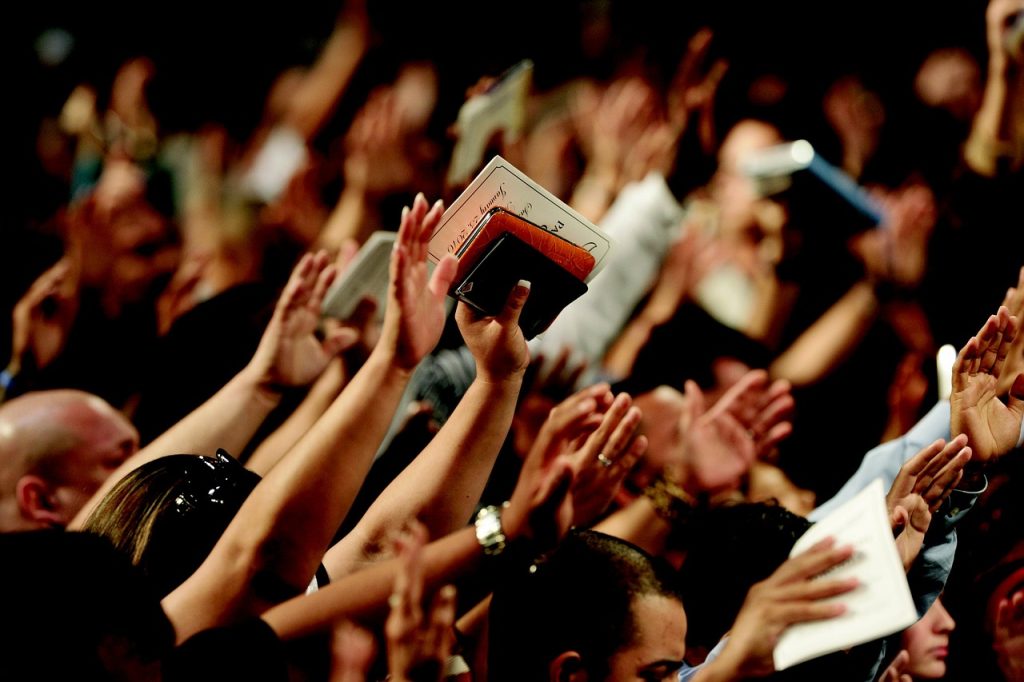What Happens When the Holy Spirit Touches You?

All Christians aim to witness the presence of the Holy Spirit. You can call yourself a true Christian without having the spirit of God inside you. In the Holy Bible, the holy spirit is known as an interior that comforts those who seek the face of God.
When the Holy Spirit touches you, there is a transformation in your physical and spiritual lives. You experience a life-changing moment that lasts a lifetime. Although this transformation is a gradual process, it develops one inner being.
Read below as we will take you through the journey of understanding the gifts of the Holy Spirit and how they affect your life.
What Happens When the Holy Spirit Touches You?
The holy spirit is part of the Trinity and brings changes to Christians who receive Christ. When the Holy Spirit touches you, you experience:
Overwhelming for Peace
One of the things you experience when the Holy Spirit touches you is a special sense of peace. This peace makes you very confident, even in turbulent periods. Romans 14:17 tells us that God’s kingdom isn’t about feeding, but amplifying our spiritual life. For this to happen to a believer, the holy spirit’s presence is needed.
Spiritual Alertness
A believer should be in touch with their spiritual part. God is a spirit and we should relate with him as a spiritual being. When the holy spirit touches you, you will find yourself understanding the fruits of the Spirit, and your inner eyes will be opened. 1 Corinthians 2:9–10 tells us that the Spirit of God searches everything, even God’s depths.
What this tells us is that when you are touched by the spirit, you start to know what God’s plans are. The Holy Spirit helps you know what God plans for you and increases your relationship with God. Your spiritual eyes will be opened, and you will have a proper relationship with God.
Be More Compassionate
While you can be caring and compassionate without the Holy Spirit, when he touches you, it becomes more amplified. As a Christian, you will start to have a desire to be more caring and show love to others, even when they aren’t family. You will experience an overflowing divine love to show kindness. (Romans 8:15:16) explains that the Holy Spirit stands as a Christian witness to God.
With the call,’ abba father, the Holy Ghost will show us the way to God’s grace.
Courageous in Christ
The Holy Ghost’s presence helps everyone to be more brave in faith. With the spirit entering our lives, we fear no one and immediately start professing God’s word. It isn’t just through words, but with our actions, and we show you people that we don’t fear the devil because we are children of God.
(1 Timothy 1:7:8) helps us understand that God gave us the Holy Spirit to help us with self-control and love. We should not be ashamed to share the gospel of God because, with the Holy Spirit, we have talked about the power of God.
Clear Goals
Most Christians suffer from depression from a lack of clarity of purpose. This has led many to make the wrong decisions. (John 16:13) helps us understand that when the Holy Spirit touches you, you will know the truth.
With His presence, he will tell you things that will come in the future. You can see that with the above scriptures, a spirit-filled Christian cannot go astray because he has a guardian.
More Aware of Sins
When the Holy Spirit touches you, his first mission is to make you aware of iniquities. As seen in John 16:8–9, the holy ghost reveals our errors and makes us aware of the consequences of all our actions. When you become more aware, you become remorseful and lose hope. When you read “Acts 2:37–38, you will see the connection between the presence of the Holy Spirit, baptism, and repentance.
Spiritual Ability
The Holy Spirit’s touch also gifts believers with different spiritual abilities. As seen in 1 Corinthians 12:7–11, once the spirit comes into your life, you get gifts like healing, speaking in tongues, knowledge, teaching, wisdom, prophecy, and faith.
What Are the Gifts of the Holy Spirit?
These Holy Spirit gifts include:
Teaching
One major gift that the Holy Spirit gives to believers is the ability to teach the word. Read Ephesians 4–11 and Romans 12:7–1, where it is stated that some believers were given the power to teach spiritual things.
The Holy Spirit teaches Christians the way of the Lord and how to interpret God’s word. While unbelievers might naturally know how to teach, they can’t teach spiritual truths.
Gift to Serve
The Holy Spirit also gives believers the gift of serving and helping others. Based on Romans 12–7, it states:
‘If a Christian gift is to serve, let him serve.’
As can be deduced from the above verse, God’s ministry needs people who can help and serve diligently. Everyone cannot be a leader; some will lead, others will serve.
Administration
The Holy Spirit also gives people the power of leadership. I’m not sure everyone doesn’t have that charismatic ability to lead the way others do. However, with the help of the Holy Ghost, you will be able to administer without problems.
In Hebrews 13–7, it is said that those who don’t have administrative powers should follow those whom God has given such powers through the holy spirit.
Gift of Evangelism
Christians in the early church were given evangelism as a personal gift and the ability to preach God’s gospel. In Ephesians 4–11, some believers were gifted with the ability to spread God’s word easily. One of those with such a gift was Timothy. In 2 Timothy 4:5, we could see how he was sharing God’s word with his followers.
What Hinders the Work of the Holy Spirit in Your Life
When you are touched by the Holy Spirit, there are several manifestations. However, some things might affect how the Holy Spirit works in your life. These are:
Distractions and Things of the Flesh
When you have the Holy Spirit in you and want to grow spiritually, avoid distractions. Many are distracted by worldly desires and the struggles of finding life. Don’t allow the pursuit of money and entertainment to clutter your heart. According to Proverbs 27–7, don’t neglect your relationship with God because of wretched desires.
Sin
God is holy and behold iniquity. If you want the Holy Spirit to operate fully with you, you can’t be in sin.
Isaiah 59 Vs. 2 (King James Version) says:
‘’ Behold, the Lord’s hand is not shortened, that it cannot save; nor is his ear heavy, that it cannot hear.
But your iniquities have separated you from your God, and your sins have hidden his face from you so that he will not hear.’’
Since God the Father, the Son, and the Holy Spirit are in a Trinity, you can’t harness the powers of the Holy Spirit while you are in sin.
Conclusion
You can’t be called a Christian without having the presence of the Holy Spirit. This is an entity that keeps us informed about God’s plan for everyone. The holy spirit comes with different gifts, which it gives to those who walk according to God’s wishes. However, if we follow the world and keep indulging in sin, the Holy Spirit cannot manifest and will eventually leave us.





